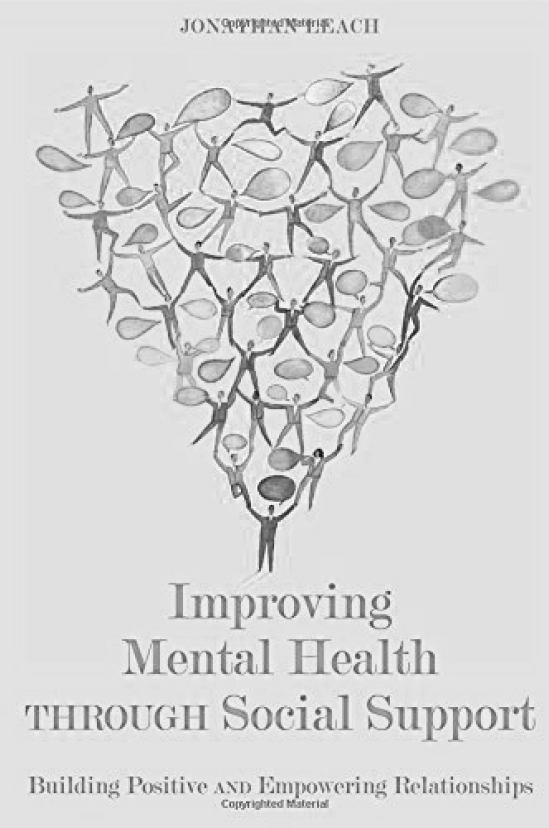
Social support is thriving in theory but certainly not in evidence-based practice. In published papers we are constantly reminded of the importance of a supportive environment in all its forms. I find it curious that when the adjective ‘social’ precedes ‘support’, ‘capital’, ‘inclusion’, ‘exclusion’, ‘networks’, ‘vulnerability’, ‘environment’, ‘control’, ‘enterprises’, ‘connections’, ‘relationships’, ‘exchange’ and ‘integration’, it seems to add a cachet of approval that somehow makes the subject more scholarly. But in practice I fear it confuses, as little seems to follow from the many dull but worthy recommendations that are made. Social support surrounds mental health like a foggy miasma; it is difficult to define, and although we cannot escape its ubiquity and importance, it does not signpost a way forward.
Jonathan Leach is nonetheless well placed to write about the subject. He has a degree in sociology, has worked in the voluntary sector, has been involved in the support needs of students, and currently works as a lecturer in mental health at the Open University. He approaches psychiatry as a keenly observing outsider, and one can easily understand his frustration with many health professionals. So when he takes part in a meeting with a community psychiatric team about a patient whom he knows very well he cannot understand why they do not involve him, and fail to recognise ‘the breadth and depth of that individual's reality that I witnessed’. He is equally puzzled by the failure of many to appreciate that mental health is more than the absence of mental illness.
But the book's title is a little misleading. The first seven chapters are sound and give a comprehensive academic substrate of the subject but I suspect these are part of the bedrock of Leach's Open University teaching. The last chapter, ‘Making it happen’, unfortunately does not. It tentatively looks at ‘possibilities’ and hints at ‘suggestions’, advises health professionals to involve carers and service users more than they do at present, makes an interesting but probably impractical recommendation to general practitioners to give more ‘social prescribing’ (yet another example of adjectival respectability), and urges generosity and goodness along the lines of an unfunded Liberal Democrat Party manifesto.
Leach only hints at the reasons why he cannot say more. There ain't no good evidence, folks. He comments that most of the research on social support is ‘small-scale and qualitative in nature’ and grumbles about the much larger funding given to ‘the evaluation of bio-medical or psychological interventions’. But this need not be so. Good, high-quality social support research is not an oxymoron; it needs a determined academic group to grab it by the horns and take it forward, just as George Brown and Tirril Harris did in highlighting the social aspects of depression 40 years ago. And now, as Leach recognises, there is much greater awareness and acknowledgment of the individuals' importance in an age when isolation is in danger of becoming the norm, so it is an ideal time to surge forward. A second edition of this book could live up to its name.



eLetters
No eLetters have been published for this article.